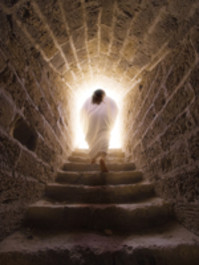The books are beside my bed and collecting around my desk - and I love it. Bill Hybel’s Just Walk Across the Room that I am hoping to finish is propped up next to my desk along with a collection of Robert Frost’s works and the History of the Reformation by J.H. D’Aubigne, who E.G. White quoted extensively in her volume The Great Controversy. The Great Controversy in turn is sitting by my bed on top of a stack that I am currently reading including Sanctified Life (that is just a great book to have handy), one of C.S. Lewis’ titles, Malcom Gladwell’s The Tipping Point, and then one of my favorite collection of essays from Robert Fulghum. It is from this final book I got my idea of eating a chair.
Fulghum tells of giving a ride to two college students headed to their summer job. Their philosophy teacher had given them an extra-credit assignment: Do something unique and memorable this summer-not dangerous or foolish, but something creative, inventive, and instructive. They were to write up what they learned and how to apply it to their philosophy of life.
So. They are eating a chair.
They bought a plain wooden kitchen chair and using a rasp have been turning it into sawdust. Then at every opportunity, granola in the morning or salad in the afternoon, they would sprinkle it on their food. When Fulghum met them they had eaten a leg, two rungs, and a back piece.
Had they learned anything? They said so. They learned how “amazing long-term goals can be achieved in incremental stages. Like how something seemingly idiotic affects your thinking about other things you do... Some things cannot be had except on a little-at-a-time, keep-the-long-term-goal-in-mind, stay-focused basis.”
I think eating chairs might help us all out. See the long-term goal and stay focused on it.
For our graduating academy seniors, his commencement weekend may seem like that goal… and certainly it is one to be proud of. Congratulations!
More importantly (as hard as that is to believe) is the project that God has launched… we call it our life. This doesn’t end at graduation, at marriage (amen!), at a job promotion, or even at retirement –
The LORD will fulfill [his purpose] for me; your love, O LORD, endures forever—do not abandon the works of your hands. Psalms 138:8 NIV
Because of His enduring love He won’t ever give up on any of us. And if you for a moment doubt this – remember one of the disciples fled from the arrest of Jesus…not only fled… but fled naked. If there was anyone that Jesus could have given up on – that would have been my pick. But we know that Jesus didn’t give up on them, and He went on to use them to change the world… including our lives.
You are like eating a chair- Jesus will do what He can, a little at a time, keeping very much the end goal in mind…and not stop until He is all the way done.
Being confident of this, that he who began a good work in you will carry it on to completion until the day of Christ Jesus. Phillipians 1:6 NIV
—Pastor Micheal Goetz






